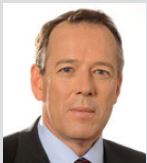What is next for the housing market since the Coalition Government held on to its majority by the thinnest of threads?
With all the votes counted, Prime Minister Malcolm Turnbull now leads with a one-seat majority government and the closest federal majority result since the election in 1961. The man he had just beaten, Bill Shorten, had been loudly calling for a Royal Commission into misconduct in the banking and financial services industry. Turnbull’s victory was meant to bring a return to stability – yet the aftermath has been anything but.
Following a cash rate cut in August to a record-low 1.5% – a figure that was not passed on in full by lenders – Turnbull announced in early August that major banks would appear before a parliamentary panel once a year to explain their decisions on interest rate changes. Mainstream media reported in mid- August that NSW Nationals senator John Williams and Queensland Liberal Warren Entsch were in support of a banking tribunal. This would enable those who could not fund themselves through the courts to take action, and could prove more effective than a lengthy Royal Commission, although Labor are continuing to make the case for one.
Reporting season for the banks, while mixed in terms of results, has continued to produce profits that look increasingly at odds with the state of the wider economy. Consumer confidence in the property market is at a three-year low, at levels not seen since December 2013, according to a June ANZ/ Property Council survey, and leading industry members have urged Turnbull to focus on housing and called for a federal minister for housing to address key issues such as housing affordability and supply and demand.
The election was meant to stabilise the housing market, but as MPA has found, it’s doing quite the opposite.

“Reform is the key, while procrastination could well be the nation’s Achilles heel. A lack of federal focus on housing policy reform increases the chance of a ratings downgrade” Harley Dale, HIA
.JPG) Housing affordability
Housing affordabilityAffordability was always going to be an election issue. Indeed, commentator Alan Kohler declared in The Australian in March that “the election is a referendum on house prices”, with the Labor Party looking to reduce house prices and the Liberals looking to reduce labour costs.
“Housing affordability is the result of there being insufficient supply of housing. You need to have more supply of housing,” Turnbull told the press earlier in the year as the federal government pledged to work with state and local governments to open up land to developers so that, with more houses, rising prices would slow.
Real estate giant LJ Hooker’s CEO, Grant Harrod, said that, overall, the re-elected government would be a positive for the property market as more properties become available and consumer confidence turns around. With record-low interest rates and the stability of a continuing government, he expects the remainder of the year to see buyers swarming the market.
The FBAA’s CEO, Peter White, agrees with Harrod but says unemployment is a key factor.
“It’s good to have the stability – there’s no point getting a short run at something; you never get anywhere,” he said. “The biggest challenge we’ve got is getting things through the Senate – trying to get motions through the Senate is still going to be as difficult as it was in the past three years.
“To solve the housing situation, you’ve got to try and bring unemployment back under control, get inflation right and encourage the growth of the country and business. If business i isn’t stimulated then you don’t have the employment opportunities, and if people don’t get employed they can’t buy houses.”
Minister for housing
A leading housing association and a leading real estate company have both called for more attention to be paid to the property market at a federal level. Housing Industry Association (HIA) chief economist Harley Dale said a national focus on housing was vital to maintaining Australia’s AAA credit rating.
“Residential building activity has been the engine room of the Australian economy for the past four years,” Dale said.
“The incoming Commonwealth government needs to focus on building the new homes for our growing population.”
This would address housing affordability challenges faced by younger generations and help businesses across the residential building industry to grow and support the Australian economy.
“Australia needs a Commonwealth housing minister – a senior minister in cabinet to provide national leadership, to coordinate federal, state and local government housing programs, to guide important industry policy reform nationally, and ensure housing has a front seat in cabinet discussions around taxation reform, national budget repair, infrastructure and workforce development,” Dale said.
Other countries have dedicated ministers for these issues, such as New Zealand’s Nick Smith, who is Minister of Building and Housing and Minister for the Environment, focusing on housing affordability and construction issues.
“Reform is the key, while procrastination could well be the nation’s Achilles heel. A lack of federal focus on housing policy reform increases the chance of a ratings downgrade,” Dale said.
LJ Hooker’s Harrod agreed that it was high time a minister for housing was appointed, and said more influence from a federal level needed to be combined with local and state government efforts to overcome concerns around housing affordability.
Harrod said a minister for housing should be appointed to oversee not only housing affordability but also supply and demand, foreign investment and property taxes.
The FBAA’s White said federal level involvement was important, but working together with state governments under the right structure was equally crucial. He also said that, on the flipside, first home buyers also needed to be sensible about what they could and couldn’t afford and might need to look further afield for their first houses.
“That’s really the key – without affordable housing no one gets into the market, but the balance of that is that buyers have also got to be realistic in what they can and can’t do.”
Summoning the banks
The Reserve Bank’s further reduction of the official cash rate in August from 1.75% to a record-low 1.5% was the first easing since May, when it dropped from 2% to 1.75%. What has caused a stir this time around, however, is that none of the major banks passed on the cut in full to their customers, spurring Turnbull’s announcement in early August that major banks would face regular scrutiny from a parliamentary panel on their interest rate decisions, at least once a year.
“This is an important step, a permanent change in the regular financial calendar that will require the banks to become accountable,” Turnbull stated.
The banks have welcomed the invitation but are defending their decisions on interest rate changes. National Australia Bank CEO Andrew Thorburn said in a statement: “I have indicated to the Treasurer I will accept the invitation to attend the Committee and discuss the way we balance the needs of all stakeholders, including borrowers, depositors, investors and shareholders.
“We believe our key responsibility is to help people with important financial decisions and to build a stronger economy. The needs of these stakeholders need to be carefully balanced, in order to sustain their support over the long term. A bank is no different, and indeed it has been my experience over 30 years in banking, that this balance is both vital and difficult.”
In a response from the Australian Bankers’ Association (ABA), chief executive Steven Münchenberg said: “We are confident banks can explain why the interest rates they set for borrowers are determined largely by the costs of funds and the pressures of a highly competitive market, not the Reserve Bank cash rate.
“Since the start of the global financial crisis over eight years ago, the Reserve Bank’s cash rate has not mirrored the actual funding costs of banks. Banks have explained repeatedly why the Reserve Bank does not set interest rates.
“About two thirds of bank funding comes from deposits, and banks have raised interest rates on a range of those deposits, even as the Reserve Bank cut the cash rate,” said Münchenberg.
He said the ABA welcomed the opportunity to address concerns around bank practices, but that when banks made their rate choices it was a balancing act between the needs of borrowers, savers and shareholders.
“As well as higher deposit costs, we have seen increases in banks’ short-term funding in wholesale markets. Banks also have to build their capital to withstand any future shocks, which adds further pressure on their margins,” Münchenberg said.

“We are confident banks can explain why the interest rates they set for borrowers are determined largely by the costs of funds and the pressures of a highly competitive market, not the Reserve Bank cash rate” Steven Münchenberg, ABA
ANZ chief executive Shayne Elliott explained that the bank had passed only half of the cash rate cut on to customers in order to pay more to their savers.
1300HomeLoan managing director John Kolenda said he expected the major banks to hike their interest rates now that the federal election was over.
“Major lenders have been assessing options to reprice but have delayed making any moves due to the attention put on them by both political parties and awaiting the outcome of the federal election,” he told MPA’s sister publication Australian Broker.
“Banks will be eyeing repricing opportunities and look to lift rates out of cycle some time in the second half of this year now the election is out of the way.”
In the shadow of the commission
As the banks and the government lock horns, Shorten and his Royal Commission are waiting in the wings. Indeed, the Labor leader reignited his campaign in early August, using the release of the banks’ record-breaking profit reports in support, as Commonwealth Bank revealed its annual profit of nearly $9.5bn.
Shorten said the banks needed to be investigated if they chose to put profits and executive rewards before customers, according to the Australian Financial Review, but the banks have retaliated, claiming that Labor’s steps will only hurt shareholders, superannuants and depositors.
“There’s a culture in banking which puts the profits of banks, big profits, billions of dollars of profits ahead of the national interest and interests of mum-and-dad mortgagees, small businesses and people with large credit card interest rate debts,” Shorten told the paper.
The FBAA’s White wasn’t previously in support of a Royal Commission into banking, but his stance has changed since the latest rate cut was not passed on fully, and he added that whether the banks passed on the full cut would depend on the environment.
“There needs to be transparency. The whole industry is under the microscope at being transparent, even the broker market,” said White. The banks especially need to be “extremely transparent”, he said, because of their power over the economy and marketplaces.
“There needs to be transparency. The whole industry is under the microscope at being transparent – even the broker market” Peter White, FBAA
The MFAA told MPA that “any major review into the wider financial services sector needs to acknowledge the positive role of brokers and ensure that consumers continue to have access to a competitive, ethical and available service.” They did not take a view on whether a Royal Commission was necessary or not.
With the politicians pressuring the banks on transparency and the industry pressuring the government on housing affordability, the property market is certainly in the political conversation for now. The question is how long will the government resist pressure to give it a more permanent place at a federal level?
If the industry unanimously keeps the pressure on government to better its efforts around housing affordability in its new term than it did in its last few years, the outcome can only be a positive for brokers.
 The RBA governor of 10 years, Glenn Stevens, will step down on 17 September and his successor Philip Lowe will take up the helm the following day.
The RBA governor of 10 years, Glenn Stevens, will step down on 17 September and his successor Philip Lowe will take up the helm the following day.Philip Lowe is the current deputy governor of the RBA, deputy chair of the Reserve Bank board, and chair of the Reserve Bank’s risk management committee.
Stevens welcomed Lowe, saying, “It is a superb appointment. There could be no one better qualified than Phil Lowe to lead the bank through the next seven years. The bank will be in the very best of hands.”
The central bank chief “negotiated a once-in-a-century mining boom without blowing up the economy”, according to Bloomberg; navigated the country through the global recession and oversaw average inflation of just 2.5% throughout his 10 years. Lowe will be the first governor in 40 years to tackle the challenges of low inflation, and with the cash rate at a record-low 1.5%, it is an unenviable task.




